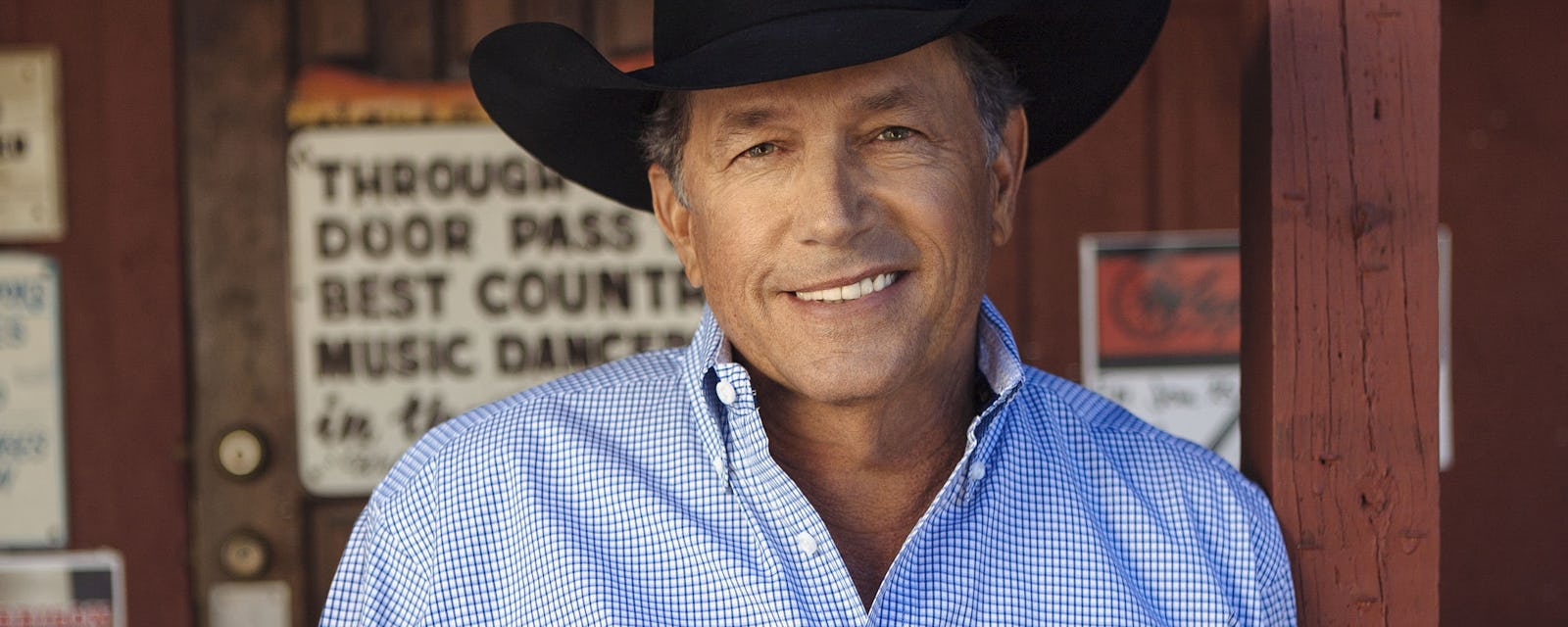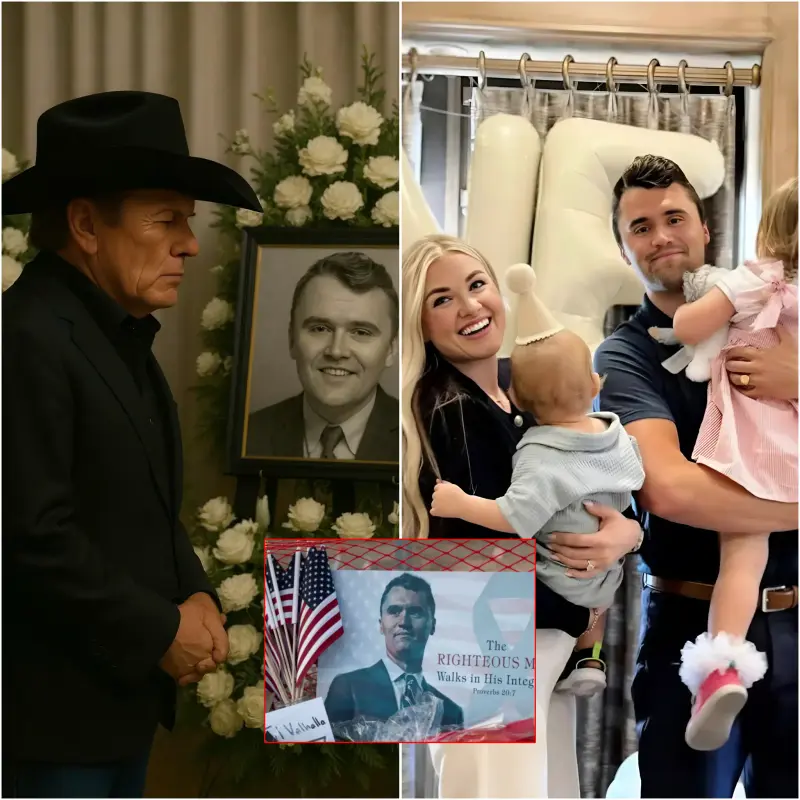A Quiet Whisper That Moved the Room
The chapel was hushed, the air heavy with sorrow, when George Strait stepped forward to the casket. With a trembling hand resting gently on the polished wood, he whispered words that carried the weight of grief: “Rest easy, son.”
Standing beside him was his own son, Bubba Strait, steady and solemn, offering silent support with a hand placed on his father’s shoulder. The crowd — family, friends, and admirers gathered to mourn the life of Charlie Kirk — looked on as one of country music’s most revered figures prepared to offer more than condolences. He was about to give a farewell only music could hold.
When Music Becomes Prayer
Strait, known for decades as the King of Country, didn’t address the crowd with speeches. Instead, he did what he has always done best: he let music speak. Slowly, he lifted his guitar, the instrument that has carried his voice through stadiums and across generations.
The first chords were simple, almost fragile. Then came his voice — low, steady, but quivering with sorrow. This wasn’t the voice of the legend who filled arenas. This was the voice of a father honoring another family’s son, filled with the ache of loss.
Moments later, Bubba’s voice joined in, soft and reverent, weaving into his father’s melody. The harmony that rose between them was tender and haunting, like a prayer carried upward. For those in the chapel, it was no longer a performance — it was an offering, a bridge between grief and healing.
A Farewell Beyond Words

The Straits didn’t need to introduce the song. They didn’t need to explain the choice. Each chord, each lyric, spoke louder than words ever could. Together, father and son transformed sorrow into something sacred, channeling it through music.
One mourner later said, “When George started singing, the entire room stopped breathing. It wasn’t entertainment. It was heartbreak, and it was healing.”
As the final chord lingered and faded into silence, Strait lowered his head again. His voice, barely audible, carried across the chapel: “We’ll see you on the other side, Charlie.”
No applause followed. No cheers. Only the sound of muffled sobs and the rustle of tissues as tears streamed freely.
The Power of Presence
For George Strait, this moment was never about celebrity. Throughout his career, despite his fame, he has always carried himself with humility and grace. At Charlie Kirk’s funeral, that humility was on full display.
He didn’t dominate the moment. He didn’t try to turn grief into spectacle. Instead, he shared it — standing shoulder to shoulder with a grieving family, using the gift that has defined his life to honor a life cut short.
Bubba Strait’s presence beside him only deepened the symbolism. It wasn’t just one man singing. It was a father and son united, carrying forward a legacy of music, love, and resilience.
A Community United in Grief

Those who attended described the atmosphere as both devastating and uplifting. While sorrow hung heavy in the air, the shared experience of Strait’s tribute brought a sense of unity. People who had never met embraced one another. Others whispered prayers or quietly hummed along to the final verses.
After the service, video clips of the tribute began to circulate online. Within hours, they spread across social media, drawing millions of views. Fans who weren’t present still felt the weight of the moment, with one comment reading: “George Strait turned grief into grace. That song was a bridge between us all.”
Why It Resonated
Music has always had the power to comfort in times of loss, but when performed by someone like George Strait, it carries an even deeper resonance. Strait’s songs have long spoken of love, loss, and the ties that bind families and communities together. At Charlie Kirk’s funeral, those themes came alive in real time.
He reminded everyone that beneath the titles, the accolades, and the fame, he is — first and foremost — a man, a father, and a believer in the healing power of music.
A Legacy of Compassion
George Strait’s tribute was not just a moment of mourning; it was a reminder of his enduring humanity. Legends are often remembered for their achievements, but it is their actions in moments like these that define them most.
As the chapel emptied and the candles flickered low, the memory of Strait’s whispered farewell lingered. It wasn’t the grandeur of the King of Country that stayed with people. It was his vulnerability, his compassion, and the gift of a song offered in sorrow.


